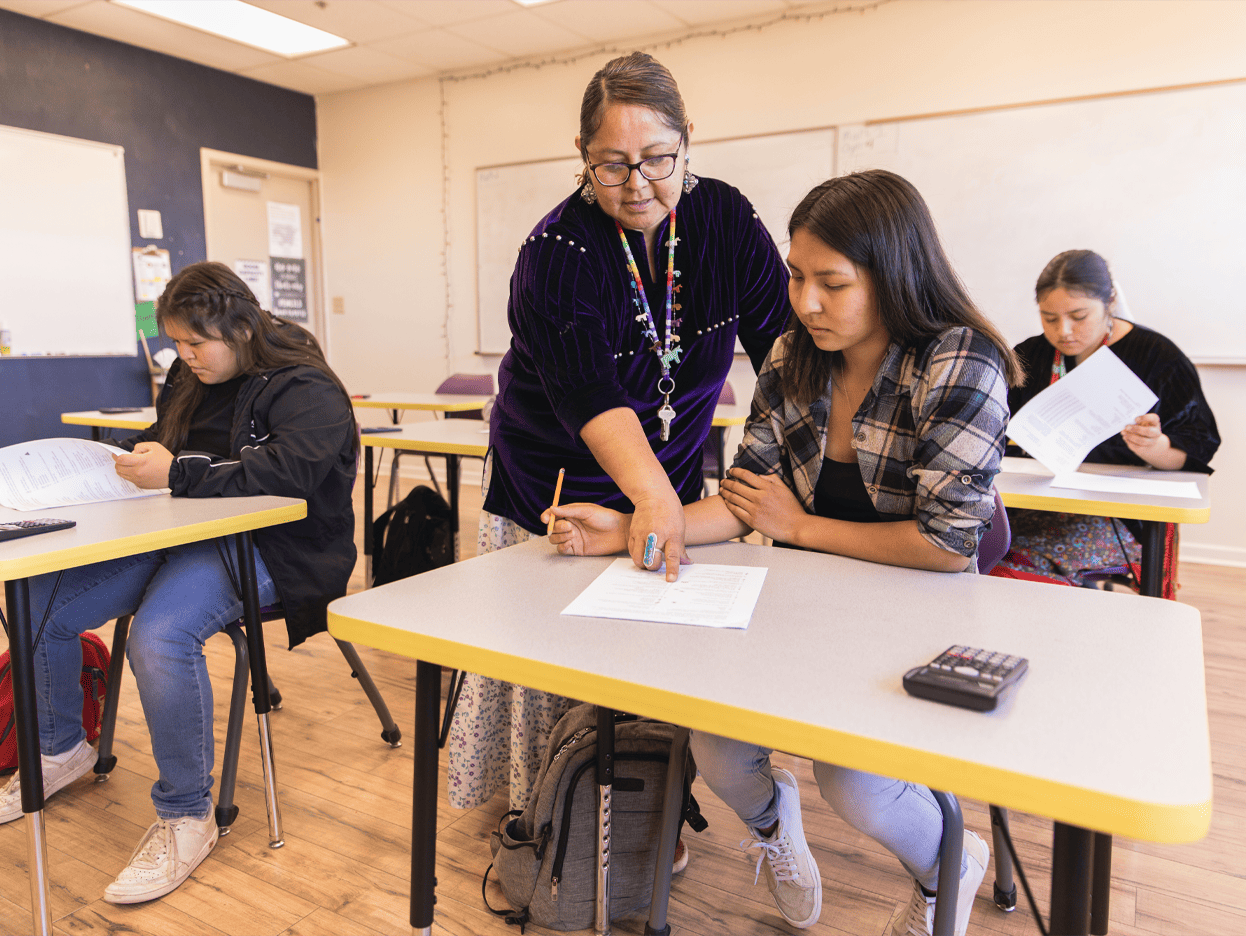A Resource for Schools Supporting Mental Health Awareness

Page Link Copied!
Filter Programs
A school-based, culturally sensitive, suicide-prevention program for American Indian adolescents, also known as Zuni Life Skills Development. Themes this program covers 1) building self-esteem, 2) identifying emotions and stress, 3) increasing communication and problem-solving skills, 4) recognizing and eliminating self-destructive behavior, 5) information on suicide, 6) suicide intervention training, and 7) setting personal and community goals. The curriculum also incorporates three domains of well-being that are specific to tribal groups: 1) helping one another, 2) group belonging, and 3) spiritual belief systems and practices. Lessons are interactive and incorporate situations and experiences relevant to AI/AN adolescent life such as friendship issues, rejection, divorce, separation, unemployment, and problems with health and the law.
MODALITY: curriculum
Skills Training for Emotional Problem Solving for Adolescents (DBT STEPS-A). Dialectical behavior therapy (DBT) skills have been demonstrated to be effective in helping adolescents manage difficult emotional situations, cope with stress, and make better decisions. From leading experts in DBT and school-based interventions, this unique manual offers the first nonclinical application of DBT skills. The book presents an innovative social-emotional learning curriculum designed to be taught by general education teachers or other school personnel in grades 6-12. Explicit instructions for teaching the skills—mindfulness, distress tolerance, emotion regulation, and interpersonal effectiveness—are provided in 30 lesson plans, complete with numerous reproducibles: 99 handouts, a diary card, and three student tests.
MODALITY: curriculum
This course has been designed for educators working with students in grades 7 to 12.
This is a non-credit, online curriculum that consists of 6 modules designed to be taught sequentially in 6-12 hours of classroom time. Modules include all course materials including learning objectives, lesson plans and all materials needed to deliver the curriculum in perpetuity. All student-facing materials are also translated into Spanish and Portuguese. Also includes one year of data collection and analysis via Osprey Research Group (pre/post surveys). After analysis, lifetime access to curriculum updates and quarterly Community of Practice Meeting access.
Learn more about this course, including program background and learning objectives, at Mental Health Collaborative.
Mental health literacy is the foundation for mental health promotion, prevention, and care and can be developed through classroom based curriculum implementation that has been scientifically shown to improve mental health related outcomes for students and also for their teachers. Curriculum aligns with National Health Education Standards and CASEL competencies.
In this course, educators will learn how to apply this classroom-ready, web-based, modular mental health curriculum resource as well as develop their own mental health literacy. Educators can then use this resource designed to be delivered to regular classrooms to successfully address mental health-related curriculum outcomes designed to be delivered by classroom teachers to students in grades 7 to 12.
MODALITY: curriculum
NAMI Ending the Silence is an engaging, educational presentation given by presenters with mental health lived experiences, that helps audience members learn about the warning signs of mental health conditions and what steps to take if a student or loved one begins showing symptoms of a mental health condition.
MODALITY: presentation
NAMI Ending the Silence is an engaging presentation that helps audience members learn about the warning signs of mental health conditions and what steps to take if you or a loved one are showing symptoms of a mental health condition.
MODALITY: presentation
Pathways to Empower offers comprehensive brain-based mental health literacy resources for elementary, middle school, high school, and college communities. Includes:
COMING SOON: A Pathways to Empower YouTube channel with animated musical content for preschool-aged children and their families
MODALITY: curriculum
The Sharpen Mental Health Literacy program is an evidence-based, 5-hour training program for high school students. The course enables students to engage with over 75 peer based documentary films incorporated into comprehensive, strength-based modules covering a range of topics including: humanistic mental health literacy, stigma reduction, suicide prevention, disordered eating prevention, strategies for finding support, and "5 minute mindfulness" techniques for improving personal resilience. The asynchronous program was created by Resiliency Technologies, a public health prevention company whose founder worked for nearly 20 years leading mental health literacy and resiliency trainings in schools. The content assembled into SMHL was built in collaboration with over 25 researchers and has been created utilizing best practices (Semchuck et al, 2023) requiring assessment, community listening and stakeholder input (Gruber et al, 2023).
Resource materials include: Full program guide, manual and resource book, self-report checklist, pre/post knowledge assessments and youth-focused videos.
MODALITY: curriculum
Sources of Strength is a best practice youth suicide prevention project designed to harness the power of peer social networks to change unhealthy norms and culture, ultimately preventing suicide, bullying, and substance abuse. Sources of Strength is one of the first suicide prevention programs that uses Peer Leaders to enhance protective factors associated with reducing suicide at the school population level. Sources of Strength Peer Leaders are a diverse group of individuals who leverage their personal and collective leadership qualities as well as their social influence in leading the charge in norming and culture change campaigns using strength-based messages to impact multiple issues including suicide.
MODALITY: presentation
This in-person training teaches high school students about common mental health challenges and what they can do to support their own mental health and help a friend who is struggling. It’s equipping young people with the knowledge and skills they need to foster their own wellness and to support each other.
MODALITY: curriculum